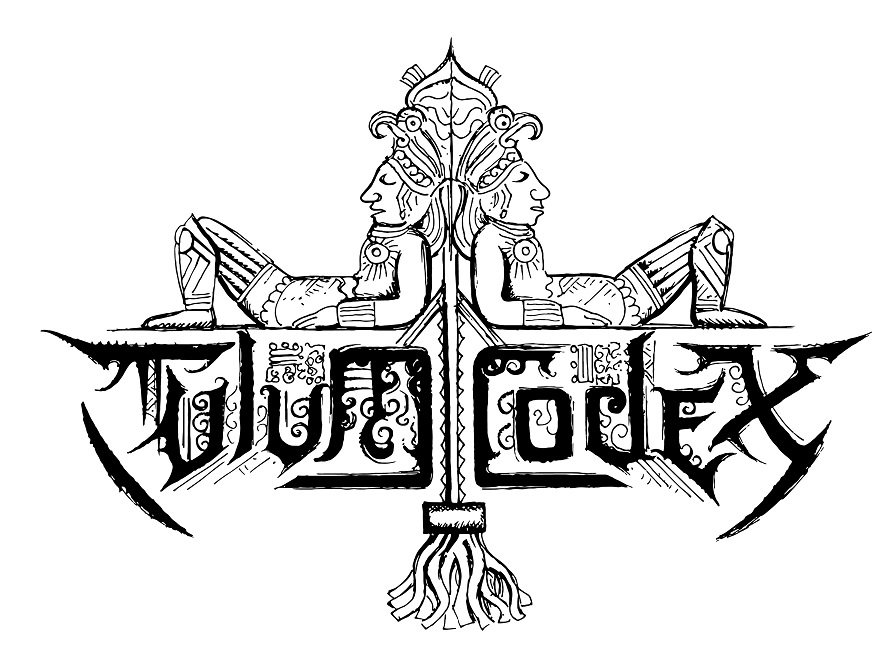My Heart Is Crying at Wounded Knee...
Taken from
the tape booklet: „It’s beyond understanding – all Indian gods, who were always
loved by redskins and were never hurt by them, appeared to be too weak in the
presence of the only god, who helped pale-faces
though they, when he descended on Earth, crucified him. How can we fight
against such a god, who fell in love with his own murderers?” All right, the
next thing: look at the band’s name and the album’s title or members names. Is
everything clear? I hope so. The members of this Polish band from Ostrołęka
city are the eulogists of culture and traditions of North American Indians. Is
it honest or not, I’m not going to be a judge of their consciences. And to put
it briefly, Manitou is very…
…mysterious
crew. Yes, I found only two mentions in the past, one in Cursed zine #2 and
another in Polish edition of Metal Hammer from 1993 from which I took the
address and wrote a letter to the band. The rest is simple. But let’s back to
the musical side of the “Wounded Knee” debut album. For sure it is not a thing
for modern kind of metallers. For sure the worshippers of nowadays
ultra-technical productions can forget about these tunes, because I deal with
very archaic method of sound realization. But it is not an obstacle, this
material is just another album which has been produced on the beginning of the
90s. And what is more, I’m truly obsessed by it, especially when the bass lines
fill the air and dominate the rest of instruments. Really, it is rather seldom
to hear such bass recording coming from those dark times, of course I don’t
write about big names, as Manitou was in deep underground. Ok, bass is perfect,
but the guitars should be louder a bit, especially when they are kept down by
the drums.
Musically
no surprises can be found while listening to it. The term death/thrash describes
the style in a good way, but I want to add doom as well. The Poles took the
main part of influences from UK death metal scene (old Benediction, Bolt
Thrower), but Swedish touch is also perceptible especially in the only
instrumental title piece. Those mentioned death/doom shades reminding me of the
very first The Chasm releases appearing in slow yet quite melodic guitar
layers. The main information concerning the musical quality is that there is no
song with the identical tempo. The musicians give a full kaleidoscope of
rhythms and paces in every track. Each step seems to be well-thought-out, just
take a listen to the guitar leads, they are all almost mid-paced, heedful and
precise, only “Excalibur” contains the fast one, a bit chaotic. Melody is given
in a proper way, it is not impudent or sweet and doesn’t soften the sound, yet
it brings some kind of secrecy and revery (“Begin from the Sin” or the opening
of “A Blaze of Ritual Fire”). Vocals of Ta - Tunka Scah are maintained in
middle range of typical growls, however there is nothing to be ashamed of, also
in “Dead Indian Traditions” some verses are sung in Polish and I consider this as
a really good move. In turn in “Begin from the Sin” vocals are overlapped.
My
complaints refer to two things only. The first one is the unconvincing opening
intro “20. 12. 1890” (I have been always wandering about this date, as the
Wounded Knee massacre took place on December, 29th) played with very
average keyboards parts and this isn’t good start definitely. Such an opening
with this title has to break my heart, oblige to feel the atmosphere of those
tragic whiles. In the case of this one minute intro nothing of that sort can be
experienced unfortunately. The second thing is less unpleasant and concerns the
last track. “Mass Depression” is the longest one amongst the rest with all the positive
stuff I mentioned above. Anyway the ending twenty seconds of the song are calm
and not so furious moments and the album ends unexpectedly. I have just been
left alone in the surrounding silence… and I don’t like it. Through all these
years with “Wounded Knee” still I have the similar feelings as it was on the
start: wrong intro and ‘strange’ closure.
To sum all
the things up: it’s a good portion of ancient music for every metal hunter.
Manitou is a really forgotten band, yet it’s worth a listen definitely. Crude,
raw and varied uncompromising sounds, all are good definitions. For sure it was
something new on the scene: without Satan, hell, church burning, killing
sadness and melancholy. The band had completely original concept on the Polish
(world?) scene and it didn’t become banal or childish. Sadly, the band died
without any words of explanation. My huge sentiment to this tape has also an
influence on the final mark. The tape which is 21 years old and still alive! And
still I have many pleasant moments during listening to it.
80/100
-Tlacaxipehualiztli
(written on April, 2014)




